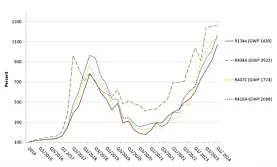Carel has always paid the utmost attention to the well-being of its employees. In this context, the company has now officially introduced disconnection guidelines to improve the quality of work and ensure a better work-life balance for the Group’s employees. The guidelines have been developed to encourage a healthier balance between work and personal time and to promote efficiency and effectiveness in collaboration between colleagues, avoiding an “always on” approach and “customised” rules for each department.
Rules for disconnection
The guidelines include limits on when emails can be sent to colleagues, to prevent them from being sent outside of office hours. Specifically, emails can no longer be sent between 6 p.m. and 8 p.m. Likewise, the use of chat groups and instant messaging must be limited between those times, unless necessary due to different time zones of colleagues in different parts of the world.
During holidays and when on leave, it will also be forbidden to call or write to colleagues to request them to work immediately and, in general, it will not be possible to ask for someone to work on public holidays or weekends. The guidelines also provide some suggestions on optimising the time spent at work and, specifically, the time devoted to meetings, with the limit set at no more than 5 hours a day. Recommended time slots for meetings have also been introduced: from 9.30 a.m. to 12 noon and from 2.30 to 5 p.m. The standard duration of meetings has also been changed: no longer 30 or 60 minutes, but rather 25 or 50, so as to always allow a break between meetings.
Furthermore, to avoid taking up time for too many people when not necessary, it is recommended to carefully choose who should take part in meetings, limited to those who will contribute or have decision-making power on the topics being discussed. To optimise meeting times, the subject of the meeting must be shared in advance with the participants, together with the type of meeting (informative, consultative, decision-making), the agenda and any decisions that need to be made.
Finally, more attention will be paid to those who want to devote some time to individual work and do not want to be disturbed: employees can in these cases simply set their calendar to “not available”.
“We firmly believe that for our people, time is the most precious resource we have in the company, and as such, we need to defend it in the best possible way. This is why we are confident that these simple disconnection guidelines will allow our colleagues and employees to improve the quality of their work-life balance and consequently not only their performance at work, but above all their own physical and mental health”, commented Carlo Vanin, Carel Chief HR & Organization Officer.






